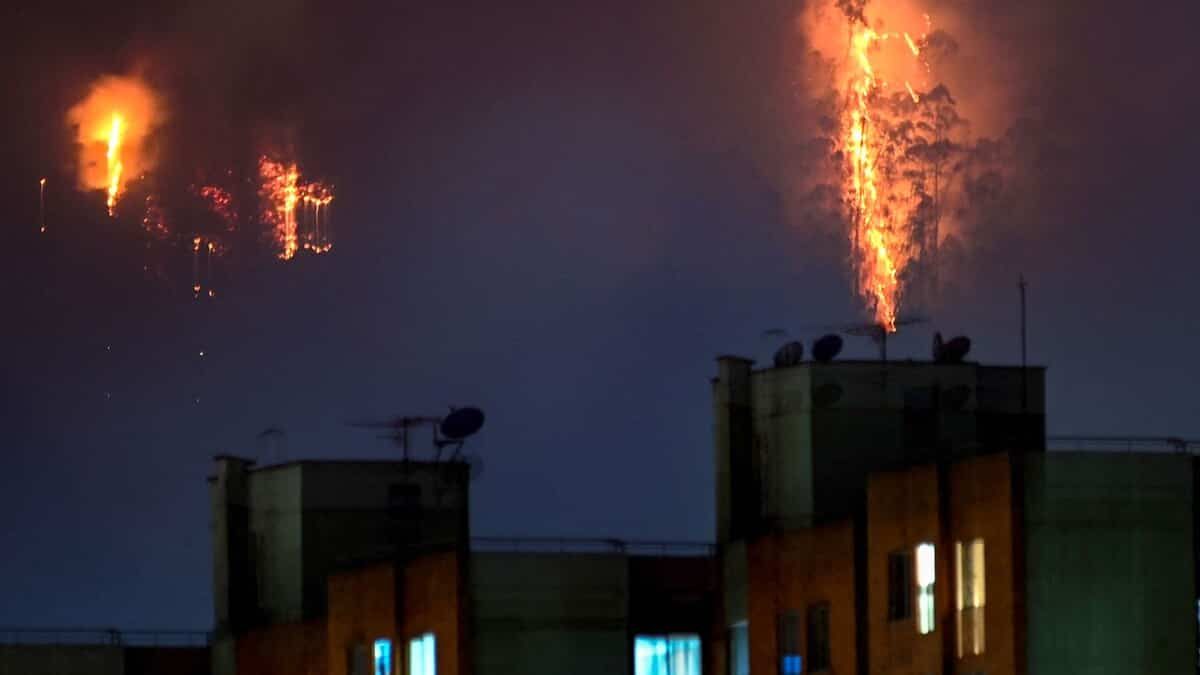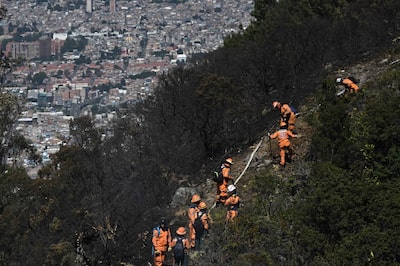
Colombia launched an appeal for international assistance to deal with about three dozen wildfires, including several around the capital, Bogota, affecting air quality and traffic at the international airport on Thursday.
• Read also: Tinder and Scopolamine: Tourists targeted with deadly cocktail in Colombia
President Gustavo Petro told the press that he “activated protocols requesting international assistance” so that the country could confront 31 fires in five regions of the country, which on Wednesday destroyed about 600 hectares of forest.
According to the Institute of Hydrology, Meteorology and Environmental Studies (Ideam), 87% of the country is at “maximum risk” of fires.
Mr. Petro also noted that the United States, Chile, Peru and Canada have already responded positively to Colombia's requests to help contain the development of the fires.
In Bogota, more than 300 firefighters, soldiers and rescue workers are struggling to extinguish three separate outbreaks around the capital of eight million people.
Bogota Mayor Carlos Fernando Galán called on “residents surrounding the fire areas to wear protective masks” and announced the closure of schools and the university affected by the smoke.
Civil Aviation said that the largest air terminal in Latin America in terms of cargo volume was operating “with restrictions” due to smoke and morning fog, but the situation was “returning to normal.”
About 138 flights were affected by the delay on Thursday morning, including the cancellation of 48 flights and the diversion of 16 flights to other airports.
City Hall recommended avoiding outdoor exercise, closing windows, and in certain areas, placing wet towels under doors.
“It really smells like smoke. You can even feel the cold coming down to your throat,” Blanca Galindo, a 69-year-old street vendor, told AFP at the foot of the mountains bordering Bogota, where many people wear protective masks.
Wild animals, birds, squirrels and raccoons have been seen seeking shelter in urban areas.
Colombia, famous for its biodiversity, is facing the impact of the El Niño climate phenomenon, with records of heat, drought and fires.
Nine municipalities in the north, center and east of the country recorded record temperatures of 40.4 degrees Celsius on Tuesday, according to Aidem, as January is usually the coldest month of the year.
“At present, there are 62 municipalities suffering from water stress, that is, where the capacity for fresh water is equal to or less than the demand of the population,” Mr. Petro emphasized.
Since the beginning of November, 336 forest fires have been recorded in 174 municipalities. At least 6,618 hectares of vegetation were destroyed, according to Colombian Civil Protection.








